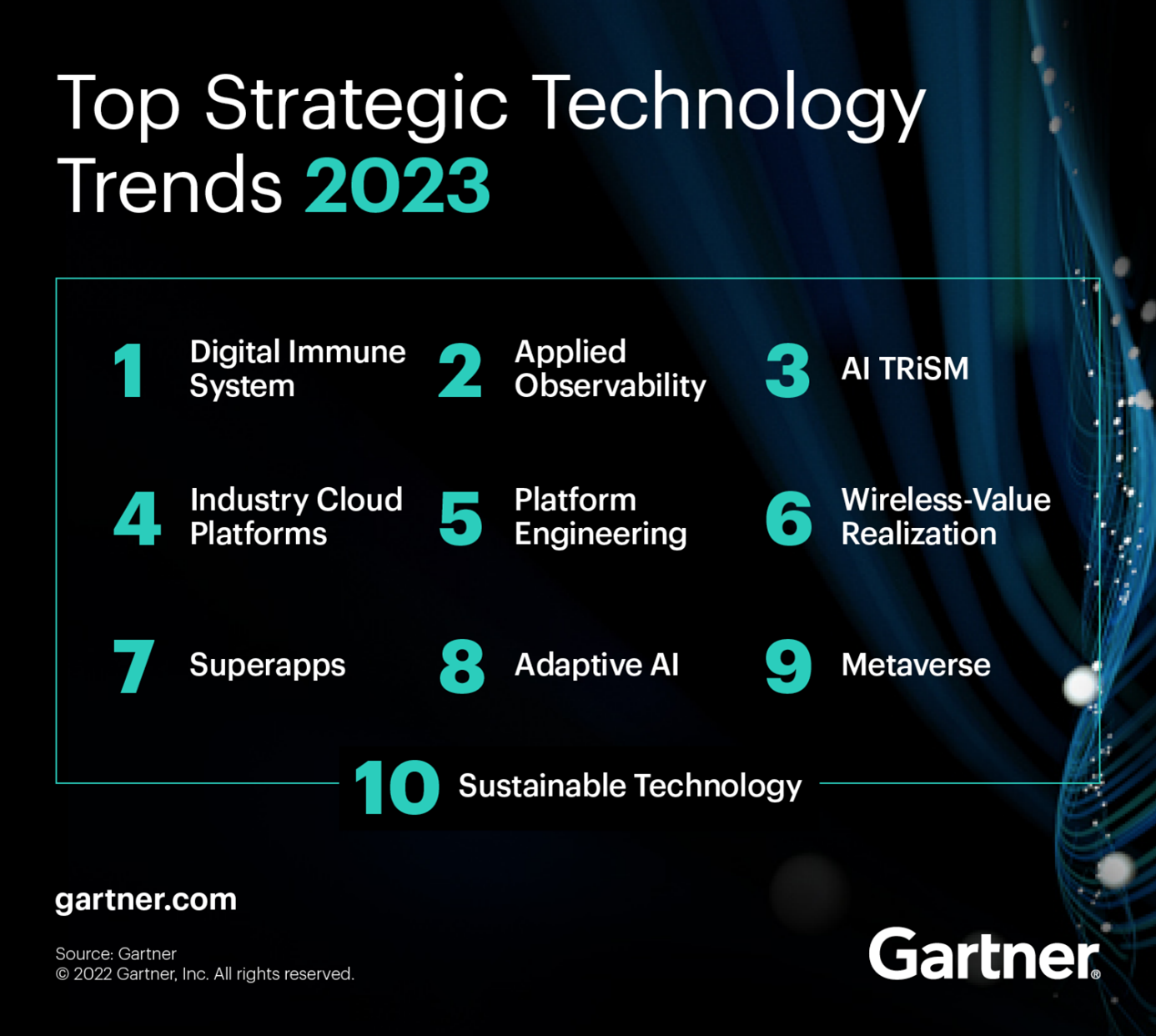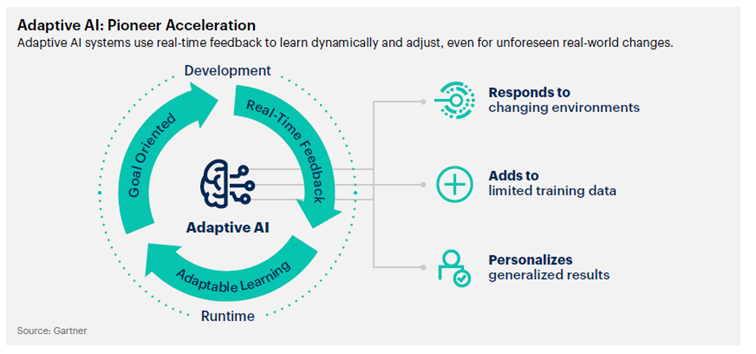Imagine building a house and being able to adapt the way you build it even while you’re building it. Such, in a way, is the promise of adaptive AI. It’s a promise that raises the bar once again for artificial intelligence. Not surprisingly then, adaptive AI is included as one of the pioneering new trends in Gartner’s latest annual list of strategic technology trends.
Each year, Gartner puts out a shortlist of top strategic technology trends (see illustration below). Endowed with a sense of urgency, these trends tend to require a response from the appropriate C-suite executives within the next three years. However, as Gartner’s analysts very wisely stress, “different trends will impact different organisations in different ways.” Therefore their advice is to “first evaluate which of these trends present opportunities and risks to your organisation’s strategic direction. This will help you develop relevant roadmaps to enable reliable and sustainable business growth and outperform the competition.”

Key business priority: pioneer
As explained in an article on the official Gartner website, the Top 10 Strategic Technology Trends for 2023 (as listed above) enable organisations to address four key business priorities or ‘themes’. “Pioneering customer engagement accelerated responses or opportunity” ranks as the third and most future-oriented or even futuristic of those themes. The technology pillars it firmly rests on are three strategic trends that focus, respectively, on reinventing engagement with employees and customers (‘Superapps’), enabling business model change (‘Adaptive AI’), and accelerating strategies to tap new virtual markets (‘Metaverse’).
Adaptive AI systems, as defined by Gartner, allow for model behaviour change post-deployment by learning behavioural patterns from past human and machine experiences, while also taking into account new information and new learning. They use real-time feedback to continuously retrain models and learn within runtime and development environments, based on new data and adjusted goals.
As one analyst from Gartner rather succinctly puts it, “adaptive AI absorbs learnings even as it’s being built.” In other words, unlike traditional AI systems, it can revise its own code to adjust for real-world changes that weren't known or even foreseen when the code was first written. As a result, these new and advanced AI systems are able to adapt more quickly to changing real-world circumstances: an indispensable quality for any and all businesses, as it really is the key to survival and success in today’s turbulent, fast-moving economy. In fact, if there is one lesson that most businesses have learned during the recent health and climate crises, it’s that you need to build adaptability and resilience into your operational design. This will enable you to react more quickly and effectively to such unforeseen disruptions in the future.

Key actions for implementation
Also included in Gartner’s Detailed Guide to the 2023 Top 10 Strategic Technology Trends are a number of best practices for implementing adaptive AI. Gartner recommends, among other things, that you maximise the business value from your ongoing AI initiatives. You can do that, for instance, by establishing AI engineering practices that streamline the data, models, and implementation pipelines to standardise AI delivery processes. AI engineering, by definition, provides the foundational components of implementation, operationalisation, and change management at the process level that enable adaptive AI systems.
Gartner also recommends that you make it easier for business users to adopt AI and contribute toward managing adaptive AI systems. This goal can be achieved, for example, by incorporating explicit and measurable business indicators through operationalised systems and incorporating trust within the decisioning framework.
At Sopra Steria, we believe that artificial intelligence (AI) is a resource with enormous potential for future growth, increased efficiency, and better work. Combining our expert knowledge on AI with years of industry experience, we are well-positioned and well-equipped to help you to use that resource profitably and responsibly. So don’t hesitate to get in touch with us!